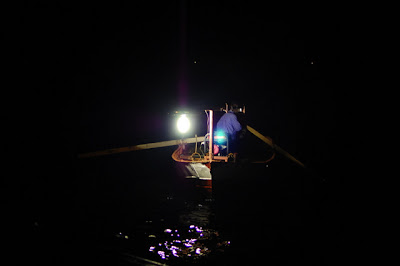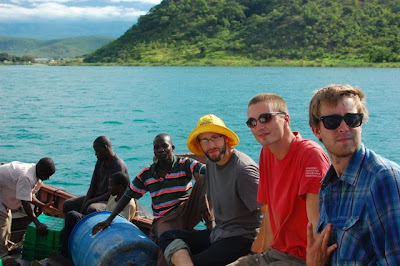Which brings me to today's post. Just the other day I was hanging out in my hut and find someone sleeping on my porch. Before I go any further with details I'll let the following video do the explaining.
Saturday, August 20, 2011
Life in the village...
Which brings me to today's post. Just the other day I was hanging out in my hut and find someone sleeping on my porch. Before I go any further with details I'll let the following video do the explaining.
Sunday, February 20, 2011
This ain't no fanny pack...
 The list (clock-wise from top left):
The list (clock-wise from top left):- head phone splitter (share music!)
- spare head phones
- UE Superfi 5vi Noise isolating earphones (amazing!)
- mefloquin ( malaria = bad )
- ear plugs + spare ear tips
- usb car cigarette lighter adapter
- usb wall charger
- ipod cable
- string
- note pad
- ipod touch
- x-mini II speakers (amazing!)
- moleskine mini file organizer
- peace corps passport
- Zambia work permit
- 60 GB ipod video
- wine opener
- nail clippers
- chapstick
- BIC lighter
- 8 GB Corsair "survivor" jump drive (waterproof, shockproof, what?)
- SOG Flash II knife (always in my pocket)
- Leatherman Wave (pack)
- Petzl Tikka Headlamp (pack)

Monday, January 31, 2011
Photo essay: Tobacco Processing Plant
A few of us embarked on a mission to search for pipe tobacco and/or cigars on our day off. The funny thing about Zambians is that they are genuinely good people and always eager to help. So, there we were asking locals around Lusaka about where one would be able to purchase cigars - thinking that where they sell cigars they sell pipe tobacco. Turns out no one in Zambia has a clue what a cigar is let alone pipe tobacco. However, they do know what cigarettes are and were more than happy to point us in the right direction. As we began to follow the directions of various people that we stopped on the street, we found ourselves walking into the industrial part of Lusaka. I'll have you know, we must have walked some 8 km searching for this mysterious tobacco store. I have no idea how many times I complained and was on the verge giving up only to be met with the response of "man up!" Needless to say, I shut my mouth and walked aimlessly with the rest of the gang in search of cigars.
Turns out we were led to the largest exporter of raw tobacco in Zambia. Below you'll find a series of photos. I've been trying to do some research but my internet time has been very limited and have not had much luck in putting together an extensive photo essay, but I'll do my best. If all else fails, the photos are awesome.
The following excerpts are taken from: Settling in Zambia
As white farmers leave Zimbabwe, Namibia and South Africa in droves, they are being welcomed with open arms north of the Zambezi River, in Zambia. Many who have moved here to start a new life have managed to achieve record-breaking harvests in their adopted country.
Only a few kilometers from Zimbabwe's fallow tobacco fields, Zambian tobacco farmers are reporting "astronomical growth rates." They produced 15,000 tons of tobacco this year. The 2004 harvest already represents a huge increase over the 4,000 tons produced in 2000, and Zambian farmers expect even better harvests in the future. In contrast, neighboring Zimbabwe's tobacco industry is likely to collapse in the very near future.
According to anecdotal evidence (as i have yet to confirm with wikipedia), Zambia is one of the few countries that produce world class tobacco along with Zimbabwe, Malawi and the United States. Zambia itself apparently specializes in the export of raw tobacco only to be processed into cigarettes in other parts of the world. Turns out the real money maker is being the middle man in this supply chain of cigarettes. Perhaps it is no surprise that China is one of the largest buyers of Zambian tobacco as their market cover anywhere from $2 pack of cigarettes to $20 pack of cigarettes.
The factory had apparently experienced a large fire that destroyed much of the machinery so currently there are renovations being conducted. That said, the whole setup is still rather impressive.

This is about 5 hours into our mission in search of cigars and about 5 minutes before being told by the largest exporter of tobacco in Zambia that there is neither cigars, pipe tobacco, nor rolling tobacco available in the country.
 The tobacco is fed through a series of what looks to be very large washing machines that strip the tobacco leaves from the stalks.
The tobacco is fed through a series of what looks to be very large washing machines that strip the tobacco leaves from the stalks. Another shot of the series of machines that strip the leaves from the stalks. Lower grade tobacco have more stalks than higher grade tobacco.
Another shot of the series of machines that strip the leaves from the stalks. Lower grade tobacco have more stalks than higher grade tobacco. A very large press presses the tobacco stalks to be used for other things. I have no clue what for - I was too busy taking photos and not listening to the tour. Oops.
A very large press presses the tobacco stalks to be used for other things. I have no clue what for - I was too busy taking photos and not listening to the tour. Oops.my life in pictures
 Life in Peace Corps is rough I tell ya.
Life in Peace Corps is rough I tell ya.A new year, a new post
update you not only need a computer but electricity as well as internet - and in
Zambia those are all hard to come by. NOt to mention that everytime you come out of
the village there's a period of adjustment that happens as you get acquainted to the
wonders of modern living. The last thing one wants to do is sit infront of the
computer so instead we sit around watching movies, cooking meals that'll give you a
hard attack, and playing board games. And then you wonder how you just wasted three
days at the house ("provincial resource center"). That said, the beauty of the provincial houses is that it gives us volunteers an opportunity to really take a break from living in the bush without having to spend two days travelling to the capital. I'm told this is unique to Peace Corps Zambia. I arrived to country and swore in with 50 or so volunteers but am only in the northern provence (the largest province) with 10 of my intake. For the most part I'll only see the other members of my intake when we have trainings in Lusaka about every 6 months, sometimes longer. The other way is to go on vacation or actually purposefully travel out of provence and use vacation days.
I've currently been out of the village for the past three weeks and am itching to get back to site. I was in Lusaka for two weeks attending our In Service Training where we basically learn the dos and don'ts Peace Corps Zambia after our three months of community entry. It is now that we should be equipped with all the necessary tools to begin our work in the village. As for the past week i've been at the provincial house in Kasama attending PEPFAR (President's Emergency Plan For Aids Relief) training where we bring counterparts from our villages and together we get trained to put on workshops geared towards fighting the HIV/AIDS virus.
I'd like to take this opportunity to back track a little a talk about Christmas and New Years. I decided that I would spend Christmas and New Years in my province rather than plan an epic trip to a neighboring country or some large tourist destination. I figure I'd save my traveling for a later time in my service and wanted to really get a good footing of my our province in Zambia. For Christmas I spent it at the house with a few other volunteers and had a deep fried mexican christmas (everything was deep fried, including bacon and butter). A few days before new years I traveled with two friends James and Scott to Mpulungu (a small town on the shore of Lake Tanganyika). It was there at Mpulungu that I somehow ended being front stage dancers for one of the movers and shakers of the Zambian Pop Music (what?) scene, Dali Sol. I'll have you know that all this went down at some back alley stage - if I can even call it that. What i CAN say is that dancing with Zambian prostitutes is actually pretty and is definitely considered as an activity like "hey, you want to go dancing with hookers tonight?" Don't worry, I haven't gone home with any...yet. The following day we ended up embarking on the Zambian commercial fishing vessel that turned out to be 19 hours on one of the largest lakes in the world (please see previous post).
After getting off the 19 hour boat ride we crashed for a few hours at the lodge we were staying at before heading towards the site of another volunteer from our intake to spend new years. It was at Babs' site that a few chickens were killed and fire works were set off. It's probably safe to say that most villagers in Mbala have never seen fire works and boy was it quite a site to have a little taste of home in the Real Africa. I believe we barely made it to midnight and had to start setting off fireworks around 10pm just to keep ourselves awake. As you can imagine, there's not much to do in the village when the sun sets - especially when bed time is around 8pm. Needless to say, I had a pretty mellow new years and birthday. Thank you for all the birthday wishes.
Below you'll find some photos from Mpulungu and Lake Tanganyika:
Sunday, January 2, 2011
Photo essay: Fishing the Tanganyika
It is estimated that 25–40% of the protein in the diet of the approximately one million people living around the lake comes from lake fish.Currently, there are around 100,000 people directly involved in the fisheries operating from almost 800 sites. The lake is also vital to the estimated 10 million people living in the basin.

The Zambian fishing crew. This is one of two commercial fishing companies left in Zambia on Lake Tanganyika. According to the captain it is estimated that there were 11 commercial fishing companies in the 60s. However, due to over fishing only 2 commercial fishing companies operate today.













































